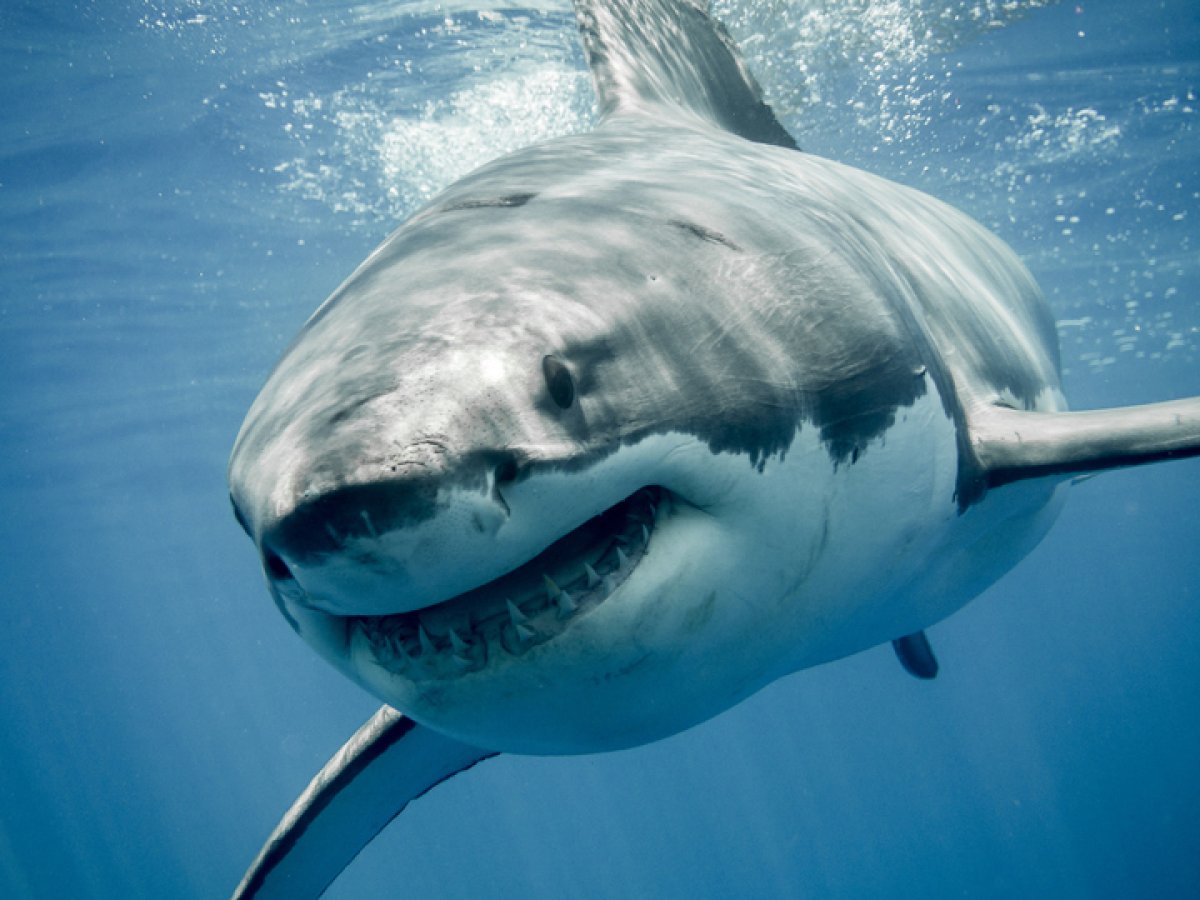Four large adult male great white sharks appear to have surrounded the Canadian island Cap-aux-Meules in what shark trackers have called a "very interesting" sight.
OCEARCH, which tracks marine animals using tagging and satellite technology, said the four adult males "have been showing up in the same area" recently.
"Very interesting to see this on the OCEARCH Global SharkTracker this morning," the organization wrote in a Facebook post. "What do you think is going on here? Could there be biomass in the region for the [great white sharks] to feed on?"
OCEARCH tracking works using devices attached to the sharks. When an animal comes to the surface, it sends out a "ping" to a satellite, allowing researchers to pinpoint its location and see where it has traveled from.
Understanding the movements of great white sharks will allow researchers to better help conservation efforts. Great whites are poorly understood and are believed to be under threat. They are a long-lived species that produce few offspring, and many populations are being impacted by climate change and unsustainable fishing practices.
4 large adult male #whitesharks showed up in the same area around Cape-aux-Meules. Very interesting to see this on the #OCEARCH Global #SharkTracker this morn. What do you think is going on? Could there be biomass in the region for the #greatwhitesharks to feed on? #FactsOverFear pic.twitter.com/6YT88RMkKF
— OCEARCH (@OCEARCH) October 26, 2020
The four sharks that have turned up off the coast of Cap-aux-Meules are known as Breton, Mahone, Vimy and Jefferson. Mahone is the largest at 13 ft 7 in, while Jefferson is the smallest at 12 ft 7 in. Male great whites, which are generally smaller that females, have an average length of between 11 and 13 feet.
The first arrival to the island was Breton, who first pinged in the region on September 23. Mahone and Vimy were first recorded in the area on October 26. The latter was caught by OCEARCH on October 1 as part of an expedition to Nova Scotia to tag more great whites.
Another male great white shark has also pinged off the cost of Prince Edward Island, about 80 miles from Cap-aux-Meules. This 11 ft 7 in shark, known as Blue Nose, was first recorded in the area on October 9.
What is attracting the male sharks to the area is unclear, although it may relate to an increase in seals in this part of the ocean. One Facebook user who lives on Cap-aux-Meules replied to the OCEARCH Facebook post with an image of a dead seal with a chunk of flesh missing from its side. The user, Jean-Simon Richard, who is a veterinarian, said the sharks were there "tasting our grey seal population."
He said the bite appeared to be from a great white. "Maybe this particular seal managed to swim away from the shark," he wrote. "Sharks often bite their prey and then wait for them to die, maybe it's what happened here."

Uncommon Knowledge
Newsweek is committed to challenging conventional wisdom and finding connections in the search for common ground.
Newsweek is committed to challenging conventional wisdom and finding connections in the search for common ground.
About the writer
Hannah Osborne is Nesweek's Science Editor, based in London, UK. Hannah joined Newsweek in 2017 from IBTimes UK. She is ... Read more
To read how Newsweek uses AI as a newsroom tool, Click here.








